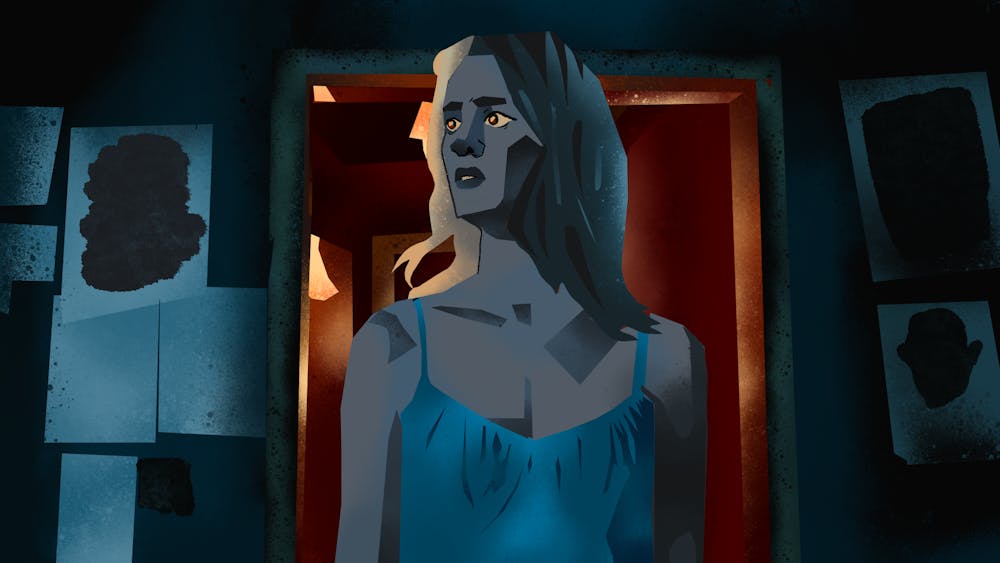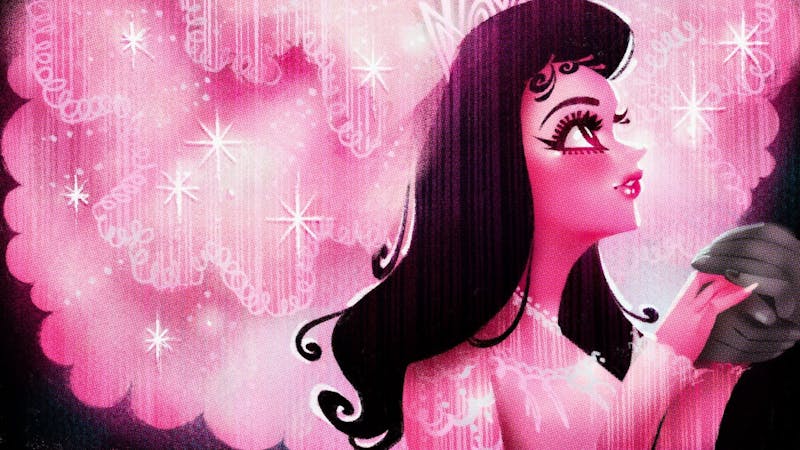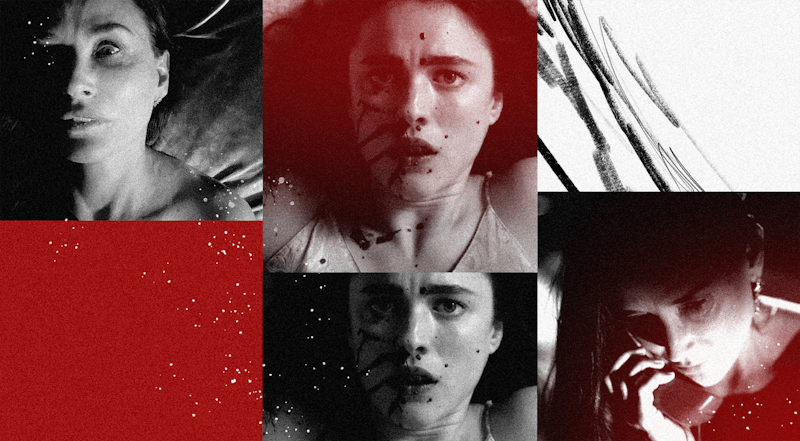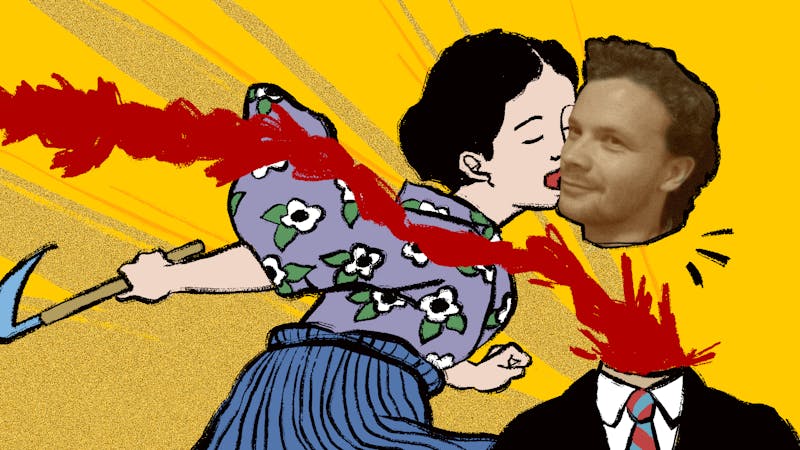How does a horror film that doesn’t deliver its scares until the last 30 minutes succeed?
With Speak No Evil, a U.S., Blumhouse–backed remake of the 2022 Danish film The Guests, director James Watkins aims to capture the slow–burn dread of films like The Shining and, more recently, Robert Eggers’ The Witch. Choosing to forgo many typical horror tropes to scare the audience—jumpscares are pulled back to a minimum—Watkins relies on the actors' performances thrown into a litany of awkward, passive–aggressive, and sometimes darkly hilarious situations to keep audiences in a constant state of guessing.
The story follows an expat American family, Louise (Mackenzie Davis), Ben (Scoot McNairy), and their daughter Agnes Dalton (Alix West Lefler), who have recently moved to London. Feeling somewhat lonely in their new environment, the family impulsively decide to accept an offer to visit Paddy and Ciara (James McAvoy and Aisling Franciosi, respectively), a British couple they recently met on vacation, at their home in the English countryside.
It doesn’t take long for the red flags to start being raised. Ant (Dan Hough), Paddy and Ciara’s mute son who they treat more than a little too aggressively, makes strange moaning noises in the night. Ciara harshly reprimands Agnes for her table manners in front of Louise and Ben. Paddy forces Louise, a vegetarian, to try a bite of his freshly slaughtered goose.
Some time into this nightmare countryside retreat, it’s apparent that the battle for control is being waged between just two: Paddy and Louise. While McAvoy, a proven horror powerhouse (Split, Glass), feels clearly in his element as the charismatic, toxically–masculine psychopath Paddy, it’s Davis who carries much of the film’s emotional polarity in Louise. In the course of the Daltons’ stay, Louise switches back and forth between roles and emotions. She seems to have a strong red flag detector, but is hesitant to respond due to her duties as mother, wife, and polite friend. This is particularly strong in contrast to Ben, who seems happy to remain perfectly oblivious to any signs of danger.
While McNairy and Franciosi are both good in their respective roles as Louise’s feckless husband Ben and Paddy's right–hand woman Ciara, they feel strikingly minor. While Ciara never seems to become anything more than Paddy’s accomplice, McNairy plays Ben so limp and resigned that he almost becomes a complete non–factor in the film at a few points—which makes Davis’s presence as Louise all the more compelling.
For Davis, who participated in a roundtable interview for 34th Street and other college publications, the responsibility to maintain a level of performance is closely tied to gender dynamics. “I think, especially for women, there is this desire to be easy and cool a lot of the time,” said Davis. “Sometimes you’re bearing the weight of society that sometimes doesn’t want you or isolates you, but you don’t want to complain about it all the time because then you’re a killjoy ... I'll have three or five complaints about this today or this week, but then I’ll be easy because you also don't want to harp all the time.”
Although there is an argument to be made that this is an unnecessary, Americanized remake of the recent original Danish film that dramatically changes the original film’s ending, Watkins makes the smart choice to define a clearer backstory for Louise and Ben.
The result of these circumstances is not only a totally emasculated Ben, but also a husband who holds one very important bargaining chip in his favor, and who’s looking for revenge. Not only does Louise have to repress her anxieties because she wants to avoid being a “killjoy” wife and mother, but she also has to navigate a delicate relationship with Ben, making her more reluctant to speak out against Paddy and Ciara’s abuses.
Speaking on Louise and Dalton, Davis said, “There's a whole history with these people being married where they were much more equal, but there's been a transgression. And in order to atone for it, my character is being more compliant and allowing her husband to take the lead as sort of a gesture of solidarity.”
But what happens when the husband doesn’t take that lead? Maybe something like the most chilling line from both the original film and Watkins' version. Ben asks Paddy: “Why are you doing this?” Paddy responds: “Because you let me.”
While the Danish version takes the tone of a critique against Danish etiquette rules, this U.S. version seems to comment as much on the absurdity of social norms as the desire, a particularly American desire, to be perceived as cool, “not like the other parents.” The Americans are lured back again and again, denying escape, not only out of social grace but because they prefer the seemingly free–spirited lives of Paddy and Ciara over their own repressed, comfortable existence.
Only in the final 30 minutes is the audience—and Davis—rewarded with the release of a Halloween–style, “the killer’s in the house” fight sequence. Filming Speak No Evil “was two months of that awkward discomfort that most of the movie is,” Davis said. “So by the time we got to the end, I was really, really happy to wield an axe and spray some acid because I needed catharsis after those long two months.”
Although ghosts and jumpscares can still be terrifying, there is something to be said about a horror film that chooses, instead of trapping its heroes with telekinetically shut doors, to trap its heroes in the frightening dynamics of marriage, friendship, gender roles, and awkward conversations. While a buff, completely over–the–top James McAvoy performance is still the main draw of Speak No Evil, Davis stands as the emotional flashpoint of the film with her clawingly conflicted performance as Louise.






